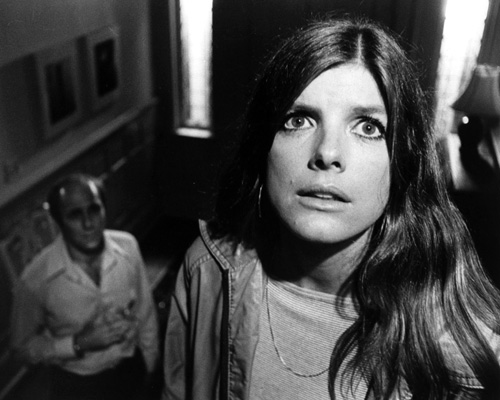With a pair of novels, 1967’s Rosemary’s Baby and 1972’s The Stepford Wives, the late Bronx-born writer Ira Levin tapped into the pulse of the women’s movement, just as Sleeping Beauty was awakening from her slumber without the aid of a prince’s kiss. Playing on the dreams of some insecure men who wished she would return to unconsciousness and the nightmares of some wary women who feared that such a relapse just might be possible, Levin crafted a pointed pair of paranoid satires, each of which received an excellent screen adaptation.
In the Stepford Wives, directed by Bryan Forbes, lawyer Walter Eberhart (Peter Masterson) talks his reluctant wife, aspiring Manhattan photographer Joanna (Katherine Ross), into moving their family to an idyllic town in the Connecticut ‘burbs. Leafy Stepford seems excellent: good schools, safe streets, low taxes. Walter loves it, quickly joining a local all-men’s club. (“They seem like a nice bunch of guys…they have a nice thing going here.”) But Joanna notices something peculiar about the women–they’re mostly obedient automatons who live to serve their husbands and boost their egos. And when less-docile local ladies go away for weekends with their spouses, they return as similarly happy, hollow homebodies.
Joanna realizes there’s likely some sort of attitude adjustment coming her way that she’d rather not stick around for, but the town seems almost designed to prevent her departure. “Isn’t it funny the things you do when you’re in love?” she says wistfully early in the film, thinking about an old flame. But funnier still are the things people will do when they’re threatened.•

